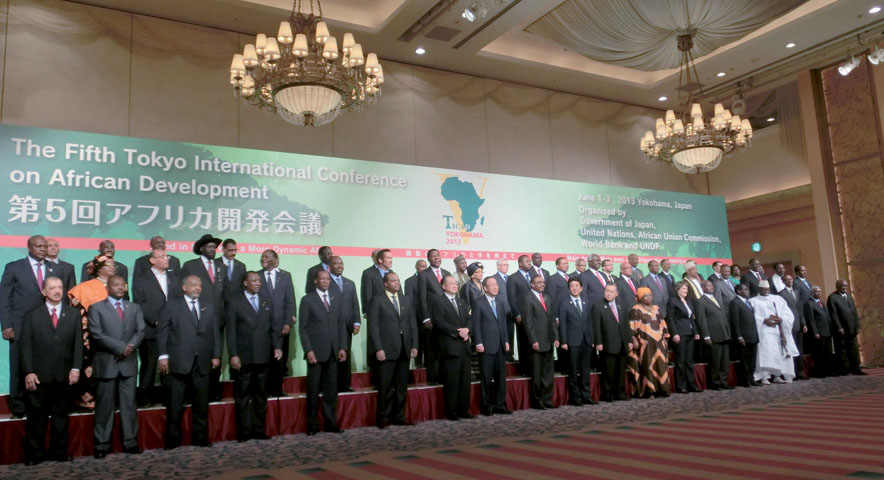 The sixth Tokyo International Conference on African Development (TICAD) taking place in Nairobi on 27 to 28 August 2016 is a major milestone in Africa’s relationship with Japan.
The sixth Tokyo International Conference on African Development (TICAD) taking place in Nairobi on 27 to 28 August 2016 is a major milestone in Africa’s relationship with Japan.
Japan’s Prime Minister Shinzo Abe arrived on 26 August 2016 in Nairobi and held a meeting with President Uhuru Kenyatta. They later addressed a joint press conference to announce the launch of the 6th TICAD, which they both hailed as historic.
President Kenyatta said “Africa still has not lived up to its potential. We need to put our heads together, to see how we can hasten the industrialization of the continent and how we can avoid the missteps of those who have previously walked this path”.
Shinzo Abe said “the TICAD Summit this time will be historic because it will be held for the first time, here in African. And Japan is working hand in hand with Africa to realize the Africa dream meant for Africans themselves. Promotion and advancement is what we will do during this this Summit”.
Being held for the first time in the continent, the conference underlines the growing influence of Africa in the global economic and political scene.
Unlike in the past, when Asian nations shied away from critical issues of democracy, governance and human rights, these have become pillars of the conference; a recognition that global trade and investment cannot be canvassed outside the realities of the day.
Further, Africa-Japan trade relations have until now been skewed heavily in favour of Japan. Whereas Japan exports industrial goods that fetch high prices, Africa continues to export raw materials, mainly agricultural crops, timber and minerals with low returns. Playing in the global market requires value addition and the onus on most African countries is to graduate from being mere producers of raw materials to exporter of processed commodities.
The continent must seize the opportunities presented forums such as TICAD to make a strong case for increased investment, fair trade practices and reduced imbalances.


